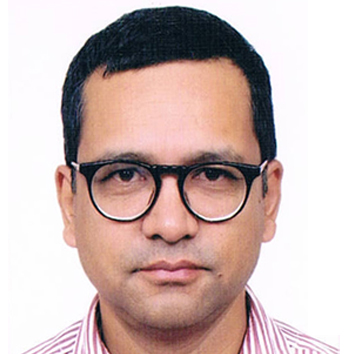Tue, Mar 3, 2026
Miscellaneous
Training via coursework
During the academic year 1988-1989, I was a very unhappy doctoral student in economics at the University of Pennsylvania. Earlier, I have described that year as the jhurest year of my life in these pages (August 26, 2017).
bookmark
Pratyoush Onta
Published at : November 24, 2018
Updated at : November 24, 2018 10:02
During the academic year 1988-1989, I was a very unhappy doctoral student in economics at the University of Pennsylvania. Earlier, I have described that year as the jhurest year of my life in these pages (August 26, 2017). During the summer of 1989, with the help of a few sympathetic faculty members with research interests in South Asia, I engineered a move out of the economics department. When a new semester of classes began in the fall of 1989, I was formally enrolled as a student in the Department of South Asia Regional Studies at the same university. This new department was going to be my intermediate stop before I would join the History Department the following year.
1989-1990
As is the case in most graduate programmes in American universities, PhD training initially involves the student taking a number of courses in consultation with their supervisors. Accordingly, during the fall 1989 semester, I took four courses. One was on the history of South Asia (1700-Present) with David Ludden. Until that time, Professor Ludden had done most of his work on agrarian history in Tamil Nadu, and had published Peasant History in South India (1985) as his first book. The readings for this course included extracts from various books and many articles. There were more than 10 students in the class, most of whom were planning to do research in India from a variety of disciplines. Everything I read for this class was new to me and I was very excited to be doing readings that introduced me to some of the debates in the history of modern South Asia. Ludden would eventually become my PhD supervisor.
The second course was on the anthropology of South Asia with the anthropologist-turned writer Amitav Ghosh, who has a D.Phil. in anthropology from the University of Oxford. The course was supposed to be offered by another faculty member who UPenn had just hired, but the processing of the latter’s work permit had been delayed. At the last minute, UPenn hired Ghosh (then living in New York and still trying to make it big in the writing world) to come and teach the course. Ghosh had already published two novels by then—The Circle of Reason (1986) and The Shadow Lines (1988), but I had not heard of them when I showed up to take his class.
I cannot recall everything that was on the reading list for this class, but it, of course, had the usual readings on caste, as was customary in most courses at that time on the anthropology of South Asia. However, we read quite a bit on the politics of languages in South Asia, which is not surprising given the fact that Ghosh was transitioning to a full-time writer. For instance, we read stuff written by the late Prabodh Pandit (1923 - 1975), a Gujarati socio-linguist who had published such books as India as a Sociolinguistic Area (1972) and Language in a Plural Society (1977; posthumously). Ghosh considered Pandit a brilliant socio-linguist who had produced pioneering works in his field before his life was tragically cut short at the age of 52. Pandit had reportedly done his doctoral research at SOAS under the legendary Ralph Lilley Turner (1888 - 1983) whose connections to Nepal and the Nepali language are well-known. In this course, we also read a bit on contemporary development politics in South Asia.
The third course I took was on ‘Colonialism, Culture and Power’ with the historian of Mexico, Dr Nancy Farriss. The course readings focussed on the making of cultural politics under colonial rule in different parts of the world. There was considerable attention paid to the languages of domination and resistance as dialogic parts of studying history after the linguistic turn. The paper I wrote for this class was titled ‘Rhetoric of phantasies of nation in modern royal discourse in Nepal’. As I was poorly trained (then and now) in analysing texts for their rhetorical content and strategies, the execution of that paper did not go well. This meant I did not get an A for this course!
The fourth course was on classical sociological theories with a professor of sociology, Harold Bershady. We read selective original texts (in translation of course) of Marx, Durkheim and Weber. We also read Anthony Gidden’s ‘guide’ to their corpus: Capitalism and Modern Social Theory: An Analysis of the Writings of Marx, Durkheim and Max Weber (1971). Bershady was interested in comparative sociology of hierarchies and he had us read Louis Dumont’s famous work Homo Hierarchicus as well. As a course offered from the department of sociology, the students in this class were mostly folks who had no research interests in South Asia but were most likely enrolled in it because it was a required course in their doctoral training.
In the spring of 1990, I took two courses. One was a course on ‘Marxism and History’ with David Ludden. In it, we read extensively from the writings of Marx and subsequent Marxists. We also read various commentaries on Marx’s work by an array of scholars. Among them, I seem to have read Shlomo Avineri’s The Social and Political Thought of Karl Marx (1968) rather carefully since almost each page of my copy of this book has been marked. This was a small class of about four or five students only.
The second course during that semester was an independent study with Professor Alan Heston, who was both a professor in the economics department (with published research on India, among other things) and the then chair of the South Asia Regional Studies Department. This course focussed on the economic history of modern South Asia and included readings on Nepal. I wrote a rather unoriginal term paper that was derived mostly from my reading of Mahesh Chandra Regmi’s works on 18th and 19th century economic histories of Nepal.
During this term, I also wrote an MA thesis with the title ‘Obsessions of Empire: Trade with Nepal and the Colonization of the Gurkhas’. In it, I made the simple argument that prior to about 1830, the British interest in Nepal was trade and later, that obsession shifted to extracting able-bodied men for their army in India.
Thus, in the academic year following the jhurest year of my life, I took graduate level introductory courses in the history and anthropology of modern South Asia and social theory and a bunch of other history classes. These courses introduced me to a range of discussions in theory, history and South Asia Studies. The financial aid provided to me by UPenn during that academic year meant I also had to teach Nepali to a couple of students, one a graduate student from UPenn and an undergraduate student from Princeton University. All of these challenges—courses in new academic territories, MA thesis, and language teaching (for which I was not trained)—meant that I had to work tremendously hard during the academic year of 1989 - 1990. But I enjoyed doing every bit of that hard work and looked forward to more of the same the following academic year.
Editor's Picks
Five and half decades of KP Oli in Nepali politics
How Facebook’s algorithm is amplifying one party over all others
Nepal’s IT exports near $1 billion. Can the momentum be sustained?
Parties’ lofty pledges on economy collide with hard realities
Upper house passes tourism bill with tougher Everest rules
E-PAPER | March 03, 2026
×




 9.89°C Kathmandu
9.89°C Kathmandu










